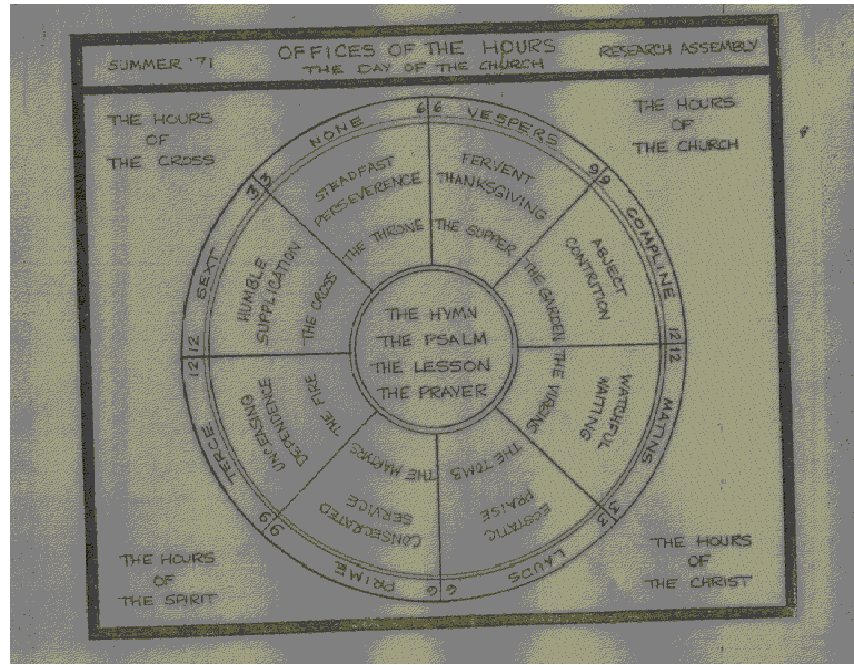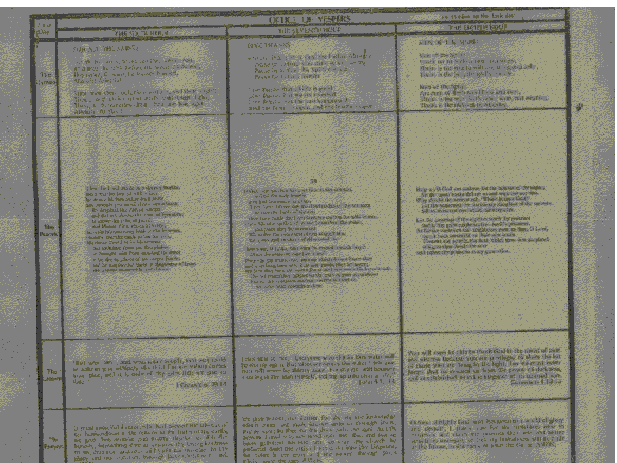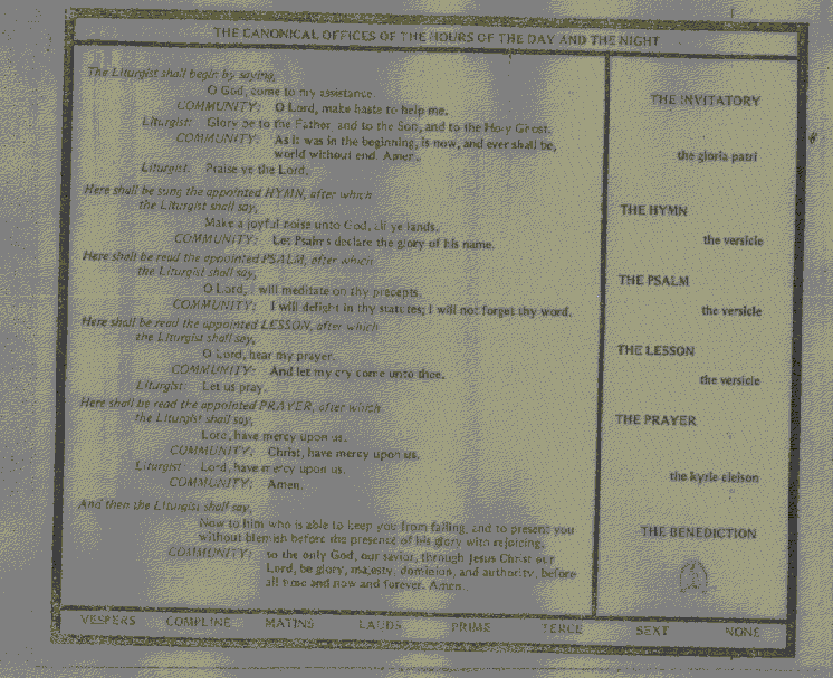
 |
The Ecumenical Institute, a division of the Church Federation of Greater Chicago, was founded by concerned citizens and churchmen as a result of a resolution offered in the Second Assembly of the World Council of Churches at Evanston in 1954. It is a notforprofit organization chartered by the State of Illinois. The Institute is dependent for support upon gifts, deductible for tax purposes, from individuals, corporations, religious bodies and foundations.
For the past fifteen years the Ecumenical
Institute has been directly engaged in experimentation and research
in contextual reeducation, social reformulation, and human
motivation in Chicago, throughout North America, and across the
globe.
Price: $1.00. Additional copies $.50 each. Quantity prices upon request.
During this century the advancement
of man's awareness of his universe has reached a pace that is
unparalleled in all the rest of history. At the same time, every
structure that man has invented in the social process is struggling
to reinterpret its foundational meaning and thrust. In these times
of great upheaval around the world we are witnessing a phenomenon
in the spirit of man.
As in the past this breakloose of the
spirit is the indication that a New Social Vehicle is about to
come into being. No new era in the social process has ever been
born save out of a new awakening in man's spirit deeps. The People
of God across the globe have sensed this awakening. The church
universal sees that its task in these times is to recreate and
recover the symbols which can be the sustaining power for the
New Social Vehicle.
This experiment in a new form of the Breviary is one attempt to recover spiritual meaning in our time. Post modern man as man in the past must have a way of internally marking the times of the day. It is his means of being present to his significance. and hence of internally sustaining himself. This becomes more important as life continually grows more complex. The aim of this Breviary is to contribute to this need. Its intent is to recapture the rich heritage of spiritual nurture found in the Canonical Hours while at the same time to transpose them into the milieu of the post modern world.
THE CANONICAL HOURS
Man tells time not only by the clock but also by
significance, or kairotically. Selfconsciousness requires
an overlay of intentionality upon time. in the midst of everyday
life the patterns of man are forged by the relationships he takes
to time-herein is the expression of the meaning of his life. The
church has marked Christian time in several ways such as dividing
the years into sacred seasons. She has told time by partitioning
the day into eight segments built around the great episodes of
the Christian faith. These are called the Canonical Hours 'and
mark both chronological and kairotic ti me. l
The Canonical Hours wvere developed in the early
church. By the third centtiry the form and arrangement had been
established, and few major changes have been made since. The nocturn
hours of Vespers, Matins, and Lauds came first. To these night
watches were added the three day hours of Terce, Sext, and None.
Later in the life of the monasteries two more hours were added:
Prime in the morning and Compline at night. This gave eight hour
offices, each one a three hour period of the twentyfour
hour day.
In the early medieval church the Canonical Hours
were used to consecrate the day and night unto God. They were
a means of sanctifying the total activity of each rotation of
the earth with each hour office corresponding to the particular
spiritual need of that time period. Hence, the hours were from
the first practical and not some theology superimposed upon the
day. As one writer has put it, the offices are like an oasis one
comes upon as he hurries through a day which offers the water
of grace and the cool refreshing shade of heavenly assistance.
The Canonical Hours contain four major elements:
hymns or canticles, the Old Testament Psalms, the Lessons or capital
verses from scripture, and prayers of the historical church. The
remaining part of the hours are the framework which hold these
major sections and include the Invitatory, the Benediction, and
Versicles.
The central key to the hour offices is the Book of
Psalms. For thousands of years the Psalms have been used by the
church as a source of spiritual sustenance. They express the joys
and agonies in the journey of the man of faith. They reflect the
spirit deeps at the very center of being. Used for depth spiritual
reflection, they are unique in devotional literature, holding
timeless themes and states of being. The offices of the hours
are built around the Psalter with three selections from the Psalms
read at each of the eight offices.
In this Breviary the Psalms are sequentially ordered
taking fourteen days to complete the full cycle of the one hundred
and fifty Psalms. The Invitatory, Benediction, and Versicles remain
constant for each hour office. The hymns and prayers, three each
for each office, are selected from both classical and contemporary
sources. The Lessons are taken from the Old Testament, the Gospels,
and Epistles. The Oxford University Press text is used for all
Old Testament readings, including the Psalms. The Phillips translation
is used for all New Testament readings.
The offices can be used in several ways. A given
office can be done any time during the three hour period it encompasses.
It can be rehearsed by a large or small group or by an individual.
The three sets of variables make it possible to use the office
in a variety of ways. One office can include all three sets of
variables or can be shortened by using only one set, or three
offices can be rehearsed during a three hour period, using one
set of variables per hour. When appropriate, the office may be
abbreviated, to the reading of one Psalm as symbolic of the whole.
The themes, moods and states of being rehearsed in
the Canonical Hours can be grasped through the aid of the accompanying
chart. One half of the offices dramatize the great mysteries of
the faith. The other half are concerned with the spiritual states
of a man of faith. The meaning and form of the hour offices here
presented is adapted to the times in which we live but is grounded
in the traditional development and is intended to be utterly loyal
to the spirit they have embodied through the ages.
May those who wax bold to use them sense the presence of the host of witnesses who in the past have' been nurtured through participation in the offices of the hours of the day.
 |
 |
|
|
 |